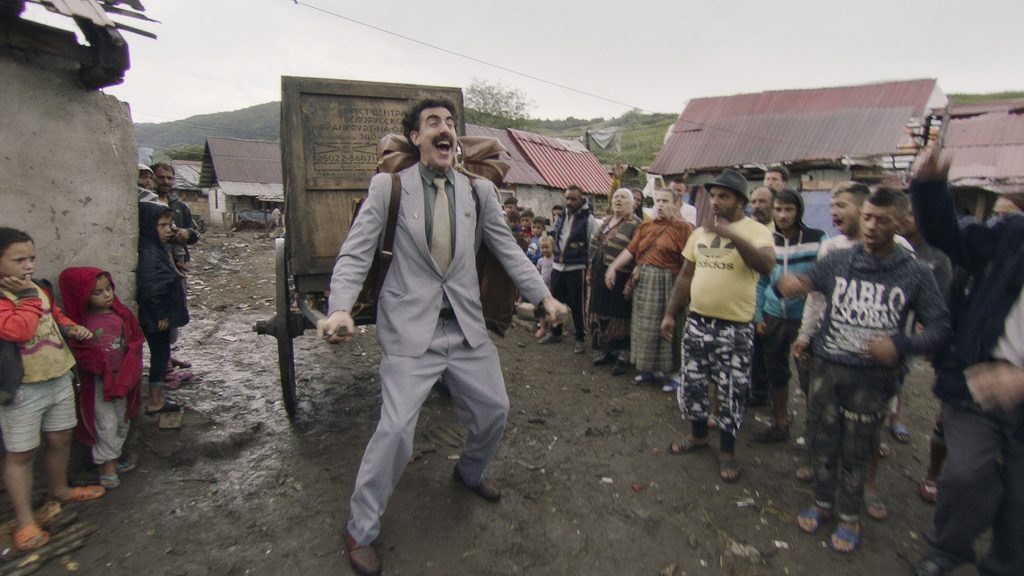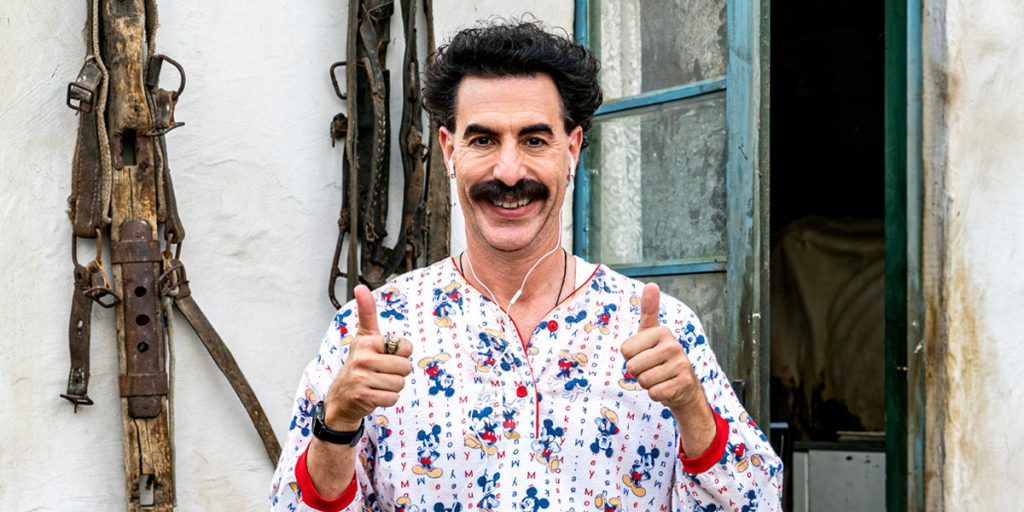Borat: Subsequent Moviefilm is a tribute to Sacha Baron Cohen’s immense talents as a comedic actor and a provocateur of truth.
The brilliance of 2006’s Borat: Cultural Learnings of America for Make Benefit Glorious Nation of Kazakhstan has been overshadowed over the last decade plus by too many folks quoting “very nice!” or “jagshemash?” in everyday conversation. In hindsight, Borat brilliantly shined a light on the subtextual reality of the American experience that Donald Trump would soon make overt. Sacha Baron Cohen’s avatar’s brilliance resides in the character’s ability to get people to show their true selves. MAGA was always there just beneath the surface, and Cohen was showcasing that reality for the world far sooner than most.
Contrary to the protestations by Rudy Giuliani and a great many others, Borat is a character who says “yes, and?”, always giving his scene partners the chance to back down from racist rhetoric. Nobody is “forcing his victims” to estimate the size of a propane tank necessary to gas a van of gypsies, nor is anyone “forcing his victims” to sing about murdering scientists. With the novelty of Cohen’s routine long worn thin, it is perhaps more interesting to see his thought process in each interaction and just how he chooses to help people open up about how they really feel.
The difference between the first Borat and Borat: Subsequent Moviefilm (or whichever of the film’s great many titles you prefer, a funny in-story gag) include a greater interest in plot and a clearer worldview. While the first film acts as a thinly stitched together set of comedic set pieces, the sequel has a clear emotional arc. Borat must come to terms with being the father to a daughter, and how his relationship with women has been perverted by Kazakhstan’s customs. It’s a smart development for a character that really need to “be better” to still resonate in 2020.

More important is how Borat 2 treats people who are not deplorable. One set piece sees Borat infiltrate a synagogue while dressed as Jew adorned with horns, a giant nose, and cartoonish bags of money. It, of course, pushes the limits of decency. When Borat enters, he is greeted by two elderly women who, rather than attack the antisemitic caricature, greet the stranger with kindness and decency. Lest their be any ambiguity the “enemies” are the ones who respond with decency in the face of scorn.
Cohen is, as usual, simply genius in the role. What he does here is not really “acting” in a conventional sense, but it is absolutely brilliant. Resting in the middleground between improv, sketch comedy, and hardened journalism, Cohen shows a willingness to put himself in potentially harrowing situations to shine a light on how people really feel. Maria Bakalova, who plays his daughter, is similarly fearless. She is absolutely going for it, every bit as much as Cohen, to try to get at people’s real reactions.
It is clear as well that Cohen has beautifully adapted to the changing circumstances of the world as he filmed. The way the film artfully integrates COVID-19 into the narrative, and the cultural experience of America, is whip smart. I do not really care to get into the controversies surrounding the movie, and the tactics Cohen used to get people to acquiesce to being filmed, as the result is really what matters.
Put simply, I do not know how to judge Borat 2 as a conventional film. As a narrative story, it is a pleasant enough but cliché journey that sees a father come to love and respect his daughter. As a pure comedy, it is one of the most acerbically funny movies of the last decade. As shock theater, it is harrowing. As a portrait of America in 2020, it is a work of staggering brilliance. In its way, Borat: Subsequent Moviefilm is perhaps the most consequential pop culture document of 2020.

